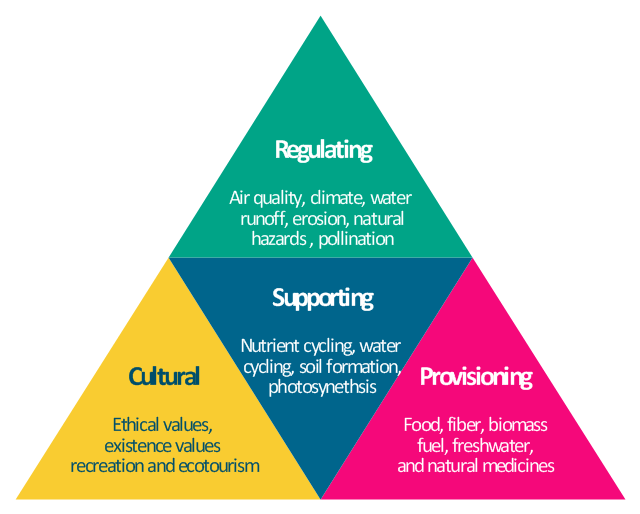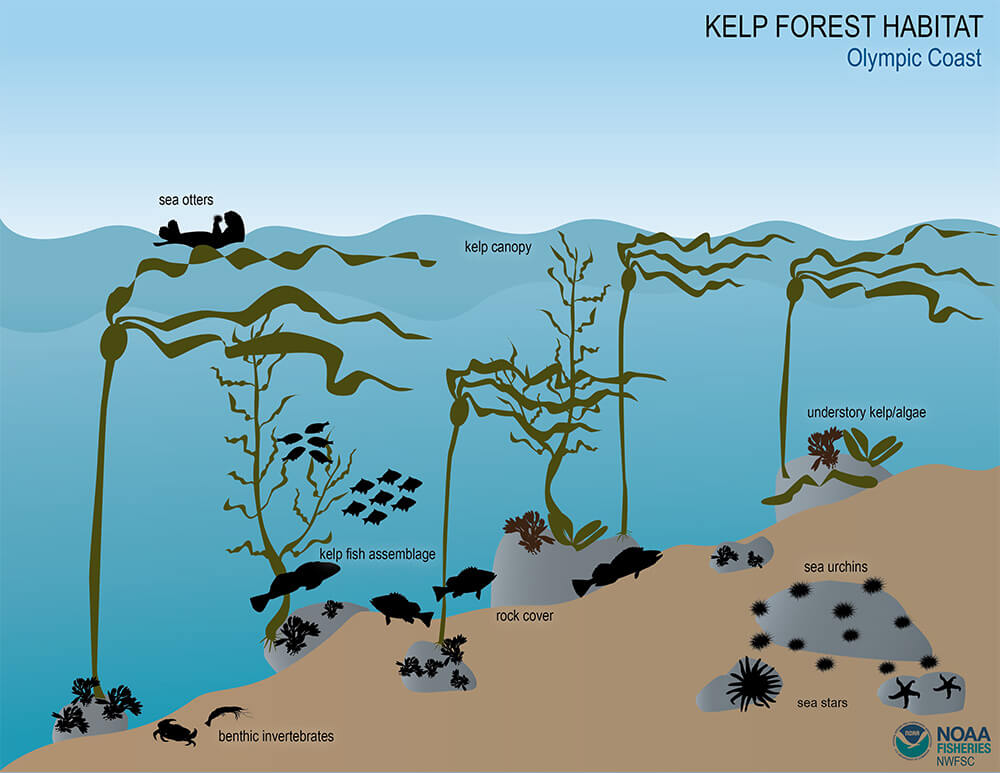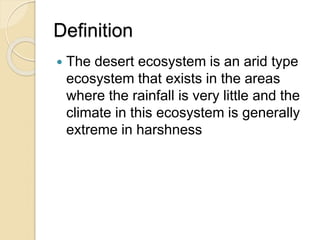Topic definition of ecosystem service: Discover the essence of ecosystem services, the natural world"s invaluable contributions to humanity, fostering a sustainable and prosperous future for all.
Table of Content
- What is the value of nature to people that has been recognized in recent years under the concept of ecosystem services?
- Overview of Ecosystem Services
- Types of Ecosystem Services
- Benefits of Ecosystem Services to Humans
- Examples of Ecosystem Services
- Role of Ecosystem Services in Biodiversity
- YOUTUBE: Understanding Ecosystem Services
- Challenges and Threats to Ecosystem Services
- Conservation and Sustainable Management of Ecosystem Services
- Global Initiatives and Policies on Ecosystem Services
- Economic Valuation of Ecosystem Services
- Future Directions in Ecosystem Service Research
What is the value of nature to people that has been recognized in recent years under the concept of ecosystem services?
The value of nature to people that has been recognized in recent years under the concept of ecosystem services includes:
- The many and varied benefits provided by the natural environment and healthy ecosystems.
- Benefits people obtain from ecosystems, which can be divided into supporting, regulating, and provisioning services.
READ MORE:
Overview of Ecosystem Services
Ecosystem services are the vast array of benefits that nature provides to humanity, essential for our survival, well-being, and economic prosperity. These services are often taken for granted but are crucial in maintaining the balance of our planet"s ecosystems. From the air we breathe to the food we eat, ecosystem services are integral to every aspect of our lives.
- Provisioning Services: These include the production of food, fresh water, wood, fiber, and genetic resources.
- Regulating Services: Natural processes regulated by ecosystems such as climate regulation, flood control, disease regulation, and water purification.
- Cultural Services: Non-material benefits obtained from ecosystems through spiritual enrichment, cognitive development, recreation, and aesthetic experiences.
- Supporting Services: Services such as soil formation, photosynthesis, and nutrient cycling that support other services.
Understanding and valuing these services is crucial for sustainable management and conservation efforts, ensuring that future generations can also benefit from the Earth"s natural resources.

Types of Ecosystem Services
Ecosystem services can be categorized into four main types, each playing a unique role in supporting life on Earth. These categories help in understanding how ecosystems contribute to our well-being and economic prosperity.
- Provisioning Services: These are the products obtained from ecosystems, including food, fresh water, timber, fiber, and genetic resources. They are the most direct benefits we derive from nature.
- Regulating Services: Ecosystems regulate essential environmental processes and life support systems, including air quality maintenance, climate regulation, water purification, pollination, and disease control.
- Cultural Services: These are the non-material benefits people obtain from ecosystems through spiritual enrichment, cultural heritage, recreation, ecotourism, and aesthetic experiences, contributing to the development of human culture and individual well-being.
- Supporting Services: These services are necessary for the production of all other ecosystem services, such as soil formation, nutrient cycling, and primary production. They underpin the functioning of ecosystems and their ability to provide services.
Each type of ecosystem service is crucial for sustainability and human survival, emphasizing the need for conservation and sustainable management practices to ensure these services continue to support life on Earth.
Benefits of Ecosystem Services to Humans
The benefits of ecosystem services to humans are immense, touching every aspect of our lives. These natural services not only provide essential goods but also maintain the environmental conditions necessary for our health, well-being, and economic prosperity.
- Health: Clean air and water, along with the regulation of diseases and pests, directly contribute to human health, reducing mortality and morbidity.
- Food Security: Provisioning services like crop pollination, water supply, and fertile soil are fundamental for food production, ensuring food security and nutrition.
- Economic Benefits: Many industries, including agriculture, forestry, fisheries, and tourism, directly rely on ecosystem services, contributing significantly to global and local economies.
- Cultural and Recreational: Cultural services provide recreational, aesthetic, and spiritual benefits, enhancing mental health, community well-being, and cultural identity.
- Climate Regulation: Ecosystems play a critical role in regulating the climate, including carbon sequestration and storage, which mitigates the effects of climate change.
- Disaster Mitigation: Natural barriers such as wetlands and forests help in flood mitigation, storm protection, and erosion control, reducing the impact of natural disasters on human settlements.
Recognizing and sustaining ecosystem services is vital for human survival and the continuation of life on Earth, highlighting the importance of conservation and sustainable management efforts.
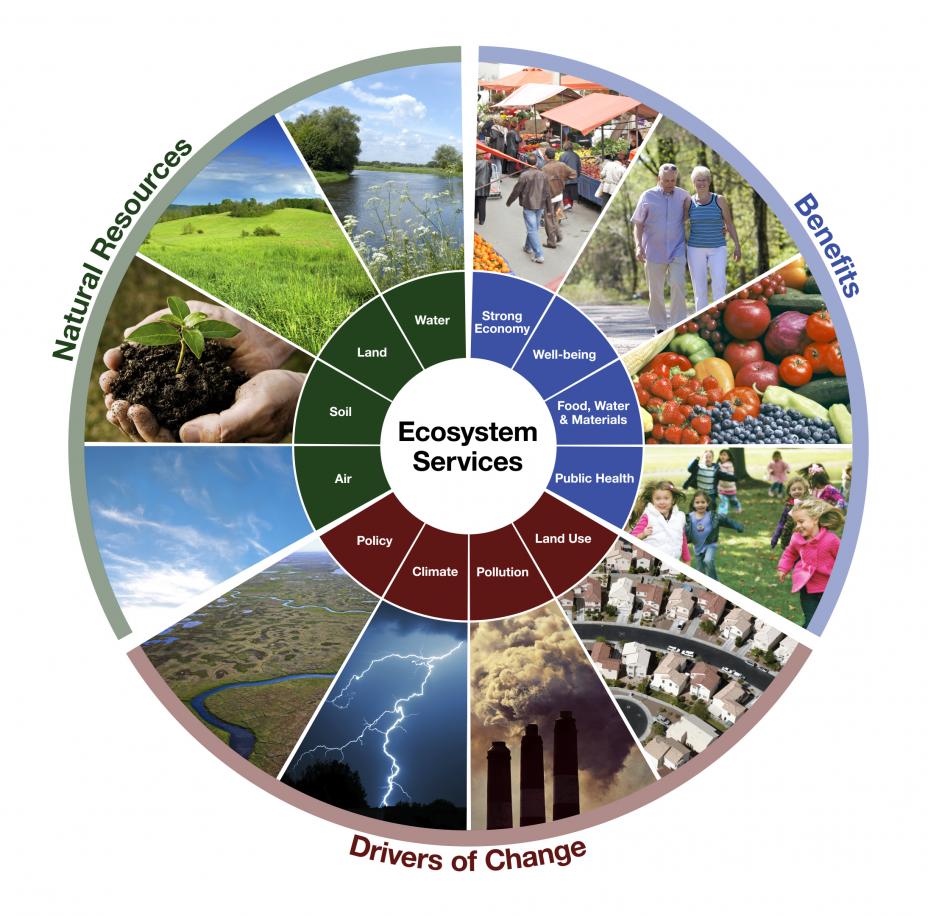
Examples of Ecosystem Services
Ecosystem services are diverse and multifaceted, offering countless benefits across the globe. Here are some concrete examples that illustrate the critical role these services play in supporting life on Earth.
- Water Purification: Wetlands act as natural water filters, removing pollutants and sediments from water, ensuring clean water supplies for drinking, agriculture, and recreation.
- Pollination: Bees, butterflies, and other pollinators are essential for the reproduction of many plants, including crops vital for food production, contributing to food security and biodiversity.
- Carbon Sequestration: Forests and oceans serve as carbon sinks, absorbing CO2 from the atmosphere, which helps to mitigate climate change and regulate global temperatures.
- Soil Erosion Control: Vegetation cover and root systems stabilize soil, preventing erosion, enhancing soil fertility, and supporting agriculture and water quality.
- Flood Regulation: Floodplains and forests absorb excess rainfall, reducing flood risks and protecting communities and agricultural lands from water damage.
- Recreational Services: Natural landscapes offer recreational opportunities such as hiking, birdwatching, and outdoor sports, contributing to physical health and mental well-being.
These examples underscore the indispensable value of ecosystem services to humanity, emphasizing the need for sustainable environmental stewardship.
Role of Ecosystem Services in Biodiversity
Ecosystem services play a crucial role in supporting biodiversity, the variety of life on Earth, including the diversity of species, ecosystems, and genetic variations within species. These services are fundamental to the maintenance and enhancement of biodiversity through various mechanisms.
- Supporting Services: These include nutrient cycling, soil formation, and primary production, which underpin most other ecosystem services. By facilitating healthy ecosystems, supporting services maintain the conditions for a diverse range of species to thrive.
- Regulating Services: Ecosystems regulate climate, diseases, water quality, and pollination, among other factors. These services help to stabilize environmental conditions that can affect biodiversity. For example, wetlands filter pollutants from water, improving habitat quality for aquatic species.
- Provisioning Services: These are the products obtained from ecosystems, such as food, fresh water, wood, and fiber. Sustainable harvesting of these resources ensures that ecosystems remain viable and diverse.
- Cultural Services: Ecosystems provide recreational, aesthetic, and spiritual benefits that contribute to human well-being. Protecting landscapes for their cultural values often helps to conserve the habitats of various species.
Furthermore, ecosystem services contribute to biodiversity conservation by:
- Reducing habitat fragmentation through the conservation of interconnected landscapes that support a wide range of species.
- Enhancing habitat restoration efforts, which help to rebuild biodiversity in degraded areas.
- Providing a buffer against climate change impacts by maintaining ecosystems that can adapt to and mitigate the effects of climate change, thereby supporting species resilience.
The conservation and sustainable management of ecosystem services are therefore essential for the preservation of biodiversity. Efforts to protect ecosystem services, such as establishing protected areas, enforcing sustainable land use practices, and restoring natural habitats, directly contribute to the richness and variety of life on Earth. These actions help ensure that ecosystems can continue to support the complex web of life, including humans, for generations to come.
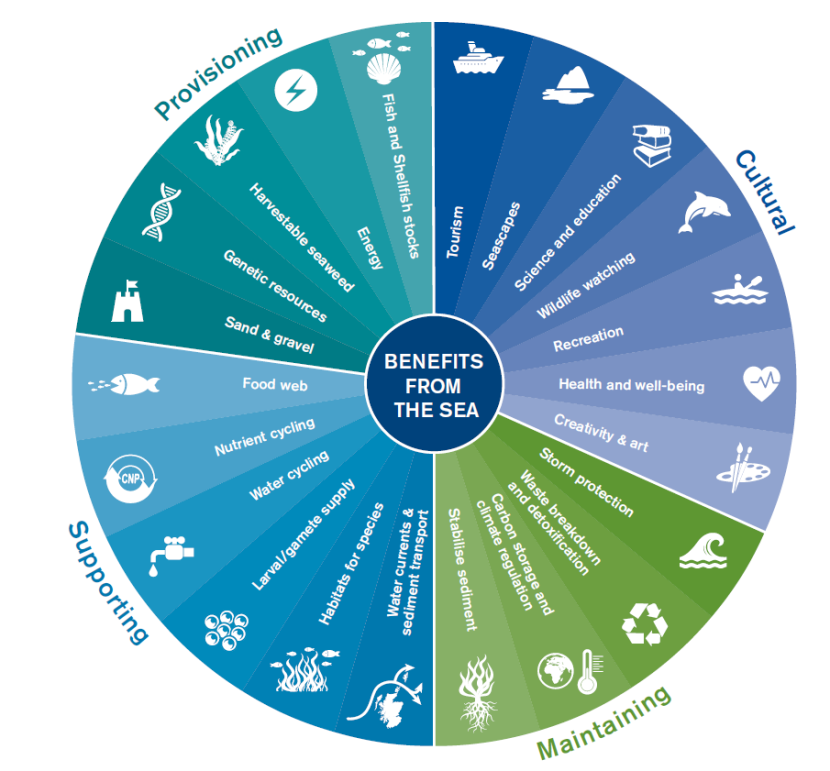
Understanding Ecosystem Services
Conservation: Dive into the world of conservation and witness the incredible efforts being made to protect our planet\'s wildlife and natural resources. Discover the beauty of nature and the inspiring stories of those dedicated to preserving it for future generations. Benefits: Explore the numerous benefits of adopting a healthy lifestyle and discover the positive impact it can have on your overall well-being. Learn how making simple changes can lead to increased energy, improved mood, and a greater sense of vitality.
Importance of Ecosystem Services for Humans
When we talk about the services we need for living, what do we think of? Water, electricity, gas, etc. Think, however, about ...
Challenges and Threats to Ecosystem Services
The sustainability of ecosystem services is under threat from various challenges, which can significantly impact the environment, human health, and the economy. Understanding these threats is crucial for developing strategies to mitigate their impacts and ensure the continued provision of these vital services.
- Climate Change: Rising temperatures, shifting precipitation patterns, and increased frequency of extreme weather events can alter ecosystems, leading to the loss of services such as flood regulation, carbon storage, and the maintenance of biodiversity.
- Land Use Change: Urbanization, deforestation, and agricultural expansion change the landscape, reducing natural habitats and their capacity to provide services like air and water purification, soil fertility, and pollination.
- Pollution: Air, water, and soil pollution from industrial activities, agriculture, and waste disposal can degrade ecosystems, diminishing their ability to offer clean water, air quality regulation, and healthy soils.
- Overexploitation of Resources: Unsustainable fishing, logging, mining, and water use exceed the natural regeneration capacity of ecosystems, leading to resource depletion and loss of provisioning services such as food, fresh water, and raw materials.
- Invasive Species: Non-native species can disrupt local ecosystems, outcompeting native species and leading to a reduction in biodiversity. This can affect ecosystem resilience and the provision of services.
- Global Environmental Changes: Acidification of oceans, depletion of ozone layer, and global pollution are altering fundamental ecosystem processes, impacting their ability to provide regulatory, supporting, and cultural services.
To address these challenges, integrated management approaches that consider ecological, social, and economic factors are essential. Strategies include:
- Implementing sustainable land and water use practices to preserve natural habitats.
- Reducing emissions and pollution through cleaner production methods and waste management.
- Enhancing ecosystem resilience through conservation and restoration efforts.
- Promoting sustainable resource use to ensure the long-term availability of ecosystem services.
- Strengthening policies and regulations that protect ecosystems and incentivize sustainable practices.
By tackling these challenges, we can safeguard ecosystem services for future generations, ensuring a healthy planet and a sustainable way of life.
Conservation and Sustainable Management of Ecosystem Services
Conserving and sustainably managing ecosystem services is vital for maintaining biodiversity, supporting economic development, and ensuring human well-being. This approach focuses on the wise use of natural resources to meet current needs without compromising the ability of future generations to meet their own needs. Here are key strategies and practices for achieving this goal:
- Protected Areas: Establishing and effectively managing protected areas such as national parks, wildlife reserves, and marine sanctuaries to conserve biodiversity and ecosystem services like clean water, air, and carbon sequestration.
- Ecosystem Restoration: Restoring degraded ecosystems to recover their functionality and services, including reforestation, wetland restoration, and rehabilitating coral reefs.
- Sustainable Agriculture: Implementing sustainable farming practices that increase productivity, reduce environmental impacts, and maintain the ecosystem services that agriculture depends on, such as pollination, water regulation, and soil fertility.
- Integrated Water Resources Management (IWRM): Managing water resources in a holistic and sustainable manner to balance human needs with the protection of ecosystems.
- Green Infrastructure: Utilizing natural or semi-natural systems to provide urban areas with ecosystem services, including stormwater management, heat stress mitigation, and recreational spaces.
- Payment for Ecosystem Services (PES): Providing financial incentives to landowners or local communities to conserve or restore ecosystem services, such as payments for watershed protection or carbon storage.
- Community-based Natural Resource Management (CBNRM): Engaging local communities in the management of natural resources to ensure that conservation efforts are sustainable and benefit both the environment and the people.
- Policy Integration: Incorporating ecosystem services into decision-making processes across all sectors of government and the economy to ensure that actions are aligned with conservation and sustainability goals.
- Research and Monitoring: Conducting scientific research and monitoring ecosystems to improve our understanding of ecosystem services, their value, and how best to conserve and manage them.
Through these strategies, we can ensure the resilience of ecosystems and their capacity to continue providing essential services. The conservation and sustainable management of ecosystem services require a collaborative effort among governments, the private sector, communities, and individuals. By valuing and investing in our natural capital, we can achieve a sustainable future for all.
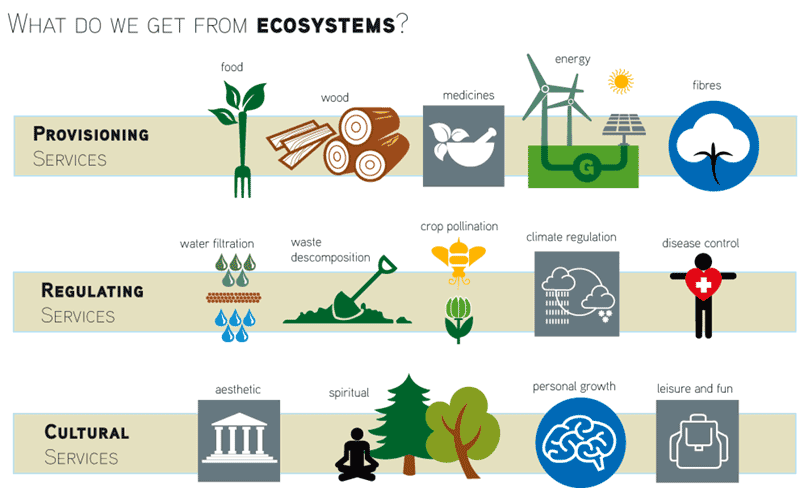
Global Initiatives and Policies on Ecosystem Services
Recognizing the critical importance of ecosystem services to human well-being and economic development, various global initiatives and policies have been established to protect, restore, and sustainably manage these natural assets. These efforts aim to integrate ecosystem services into national and international policy frameworks, encouraging cooperation and action at all levels of governance. Key global initiatives and policies include:
- The Convention on Biological Diversity (CBD): An international treaty with objectives to conserve biodiversity, use biodiversity components sustainably, and share the benefits of genetic resources fairly and equitably. It emphasizes the importance of ecosystem services in biodiversity conservation efforts.
- The Intergovernmental Science-Policy Platform on Biodiversity and Ecosystem Services (IPBES): Provides assessments on the state of the planet"s biodiversity, ecosystems, and the contributions they provide to people, aiming to bridge the gap between science and policy.
- The United Nations Sustainable Development Goals (SDGs): Particularly Goals 14 and 15, which focus on life below water and life on land, respectively, highlight the need for the conservation and sustainable use of oceans, seas, and terrestrial ecosystems.
- The Aichi Biodiversity Targets: Part of the Strategic Plan for Biodiversity 2011-2020, these targets aim to significantly reduce biodiversity loss and enhance ecosystem services by addressing the underlying causes of biodiversity decline, reducing pressures on biodiversity, and promoting sustainable use.
- Payments for Ecosystem Services (PES) Schemes: Financial incentives given to landowners or communities for managing their land to provide ecological services, such as watershed protection, carbon sequestration, and habitat conservation.
- REDD+ (Reducing Emissions from Deforestation and Forest Degradation): A mechanism developed by parties to the United Nations Framework Convention on Climate Change (UNFCCC) to mitigate climate change by incentivizing forest conservation and sustainable management, enhancing forest carbon stocks.
- The Nature Conservancy and World Wildlife Fund (WWF) Initiatives: Non-governmental organizations that work globally to protect natural areas and wild populations of plants and animals, including efforts to conserve ecosystems and promote sustainable ecosystem management practices.
These initiatives and policies underscore the global commitment to preserving ecosystem services through collaborative efforts, innovative financing mechanisms, and the integration of ecosystem services into policy and decision-making processes. By working together, countries, organizations, and communities can ensure the continued provision of vital ecosystem services, contributing to a sustainable and resilient future for all.
Economic Valuation of Ecosystem Services
The economic valuation of ecosystem services involves assigning monetary values to the benefits that ecosystems provide to humanity. This approach helps in recognizing, demonstrating, and quantifying the true value of ecosystems and biodiversity, which are often taken for granted and not adequately represented in conventional economic systems or decision-making processes. The economic valuation of ecosystem services is crucial for:
- Informed Decision-Making: It provides policymakers and stakeholders with essential data to weigh the economic benefits of conserving ecosystems against the costs of development or degradation.
- Enhancing Conservation Efforts: By highlighting the economic value of ecosystem services, it supports the case for conservation and sustainable management as investments in natural capital that yield returns.
- Facilitating Sustainable Development: It aids in integrating ecological and economic considerations in development planning, ensuring that ecosystem service values are accounted for in growth strategies.
Methods of economic valuation include:
- Market Pricing: Assigns value to ecosystem services that have direct market prices, such as timber from forests and fish from rivers and oceans.
- Cost-Based Approaches: Value services by estimating the costs avoided, replaced, or mitigated by the ecosystem, such as flood protection by wetlands.
- Preference-Based Valuation: Uses surveys and interviews to determine how much people are willing to pay for specific ecosystem services, like clean air and water, or how much they are willing to accept for their loss.
- Benefit Transfer: Applies economic values derived from one study area to another, adjusting for differences in ecosystem characteristics and socio-economic conditions.
Economic valuation of ecosystem services faces challenges, such as the difficulty in quantifying non-market services, the potential to overlook cultural and intrinsic values, and the risk of commodifying nature. Despite these challenges, economic valuation remains a powerful tool for raising awareness of the importance of ecosystems, influencing policy, and promoting the sustainable use and conservation of natural resources.
In conclusion, the economic valuation of ecosystem services is a vital process for recognizing the integral role that ecosystems play in supporting human civilization. By quantifying the economic benefits of ecosystem services, we can foster greater appreciation for natural capital, inform policy and management decisions, and contribute to the sustainable stewardship of our planet.
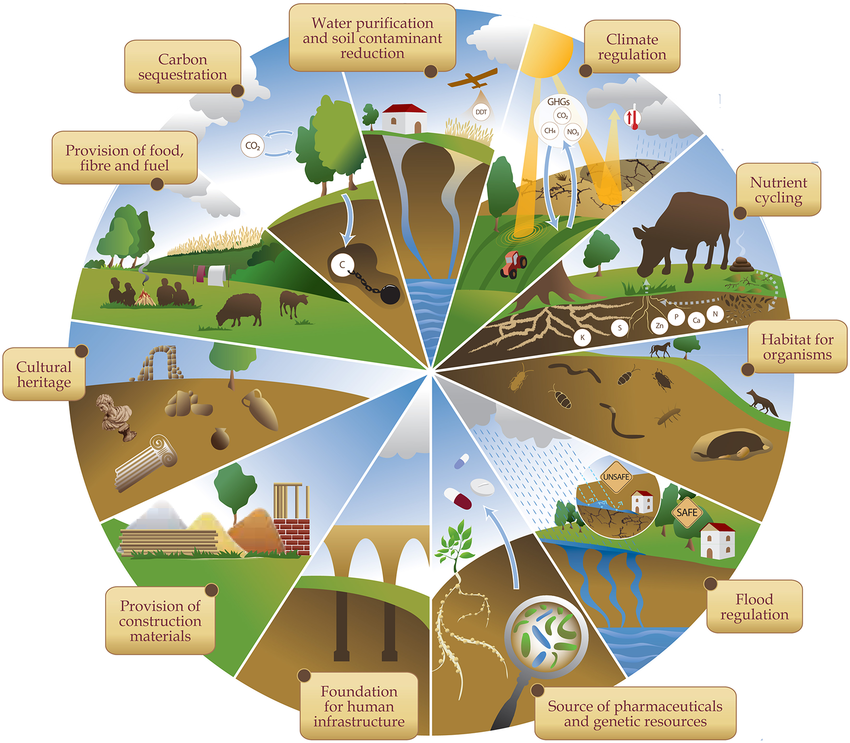
READ MORE:
Future Directions in Ecosystem Service Research
As our understanding of ecosystem services deepens, the future of ecosystem service research is poised to address the complex challenges of sustainability, biodiversity conservation, and human well-being. This evolving field will likely focus on several key areas to enhance the effectiveness and applicability of ecosystem services in policy and management. These future directions include:
- Integrated Assessment Models: Developing and refining models that can integrate ecological, economic, and social data to predict the impacts of human activities and climate change on ecosystem services.
- Valuation Techniques: Improving methods for the economic, social, and cultural valuation of ecosystem services, including non-market valuation techniques that can capture the full range of benefits provided by ecosystems.
- Policy and Governance: Researching effective governance models and policy instruments that can incorporate ecosystem service values into decision-making processes at local, national, and international levels.
- Technology and Innovation: Leveraging technology, such as remote sensing, GIS, and big data analytics, to monitor ecosystem services, assess their status and trends, and inform conservation and restoration efforts.
- Human Well-being and Health: Exploring the connections between ecosystem services and human health and well-being, including the benefits of nature exposure for physical and mental health.
- Sustainable Management Practices: Identifying and promoting sustainable land, water, and resource use practices that conserve and enhance ecosystem services.
- Interdisciplinary Approaches: Encouraging collaboration across disciplines such as ecology, economics, sociology, and urban planning to address the multifaceted nature of ecosystem services and their role in sustainable development.
- Stakeholder Engagement: Engaging communities, indigenous peoples, and other stakeholders in research and decision-making processes to ensure that ecosystem service management is inclusive, equitable, and reflects local knowledge and values.
Future research will also need to address the challenges of global environmental change, including biodiversity loss, climate change, and land-use change, and their impacts on ecosystem services. By focusing on these areas, ecosystem service research can contribute to more resilient and sustainable ecosystems that continue to support human well-being and biodiversity.
Understanding ecosystem services reveals the indispensable benefits nature provides to humanity, guiding us towards sustainable living and conservation efforts that ensure a harmonious future for all life on Earth.
